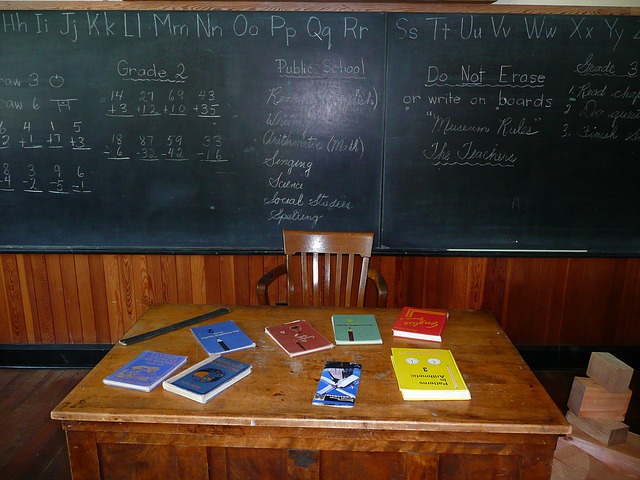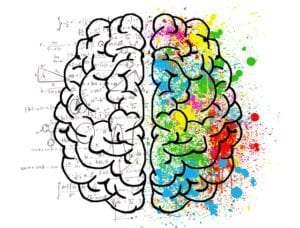What Can You Do with Curriculum and Instruction Degree?

Find your degree
Curriculum and instruction is a field of education that focuses on developing lessons, activities, and experiences both in the classroom and outside the classroom that allows students to maximize their academic achievement.
Related: 30 Best Online PhDs in Curriculum & Instruction
What to Know About Curriculum and Instruction

Education is evolving at a rapid pace with major advancements in educational technology, and the field of curriculum and instruction is trying to keep pace. New teachers who understand the dynamic possibilities that are emerging to help students are in high demand.
If you are tech savvy and have a passion for enriching the lives of the next generation, a degree in curriculum and instruction will help get you on your way. Understanding classic pedagogical theories and practices will allow you to bring a fresh outlook while maintaining aspects of educational structure that have been successful throughout history.
Consider the following subjects that are covered in most curriculum and instruction degree programs:
 Educational Psychology: Learn how to motivate students and inspire them to be curious and disciplined thinkers who will continue to seek knowledge as they continue their education.
Educational Psychology: Learn how to motivate students and inspire them to be curious and disciplined thinkers who will continue to seek knowledge as they continue their education.- Curriculum Theory: Understanding how to build a curricular foundation and then apply basics to more abstract concepts as a semester progresses.
- Evaluation: Learn how to assess a students growth based on their competencies beyond how they score on standardized tests.
- Research Foundations: Learn how to conduct classroom experiments that can allow you to improve the curriculum and enhance your teaching methods.
 Multicultural Education: Learn the cultural differences that can become barriers in the classroom if not considered and addressed.
Multicultural Education: Learn the cultural differences that can become barriers in the classroom if not considered and addressed.- Educational Technology: Learn about the new technology that is available for teachers to use in the digital age.
If you are thinking about applying to a curriculum and instruction degree program, but are worried about the financial and time commitment that you will be making, an online degree might be the best choice for you. For more information, check out the resources that we have compiled for accredited online education degree programs.
What is the Difference Between Instruction and Curriculum?
As a rule of thumb, the difference between instruction and curriculum is that curriculum is the content and theoretical progress of lesson plans, while instruction is the practical implementation of the curriculum.

While curriculum development is useful for a variety of professions within the field of education, the instruction is more focused on the particular aspects of engaging and inspiring a classroom of students. However, understanding the classroom environment and what it takes to be an effective teacher can greatly inform someone’s ability to develop curriculum, so the two fields complement each other, and are often taught hand-in-hand.
To get a better understanding of the difference between instruction and curriculum, consider a few courses that are taught in their respective fields. Some courses that fall under the designation of instruction include:
- Foundations of Education: These courses will teach students to understand the causes of increased professionalization of teaching, the philosophical basis for educational theories, and identify methods that can improve current academic standards.
 Integrating Technology into the Classroom: These courses will allow students to gain familiarity with state-of-the-art educational technology so that they can utilize modern advancements when it can benefit their students.
Integrating Technology into the Classroom: These courses will allow students to gain familiarity with state-of-the-art educational technology so that they can utilize modern advancements when it can benefit their students.- Literacy and Diversity: These courses will teach students to understand the different backgrounds that they will encounter among their students throughout their teaching career, including their reading and writing proficiency. This will allow students to understand the racial and ethnic dynamics that can affect the way students learn, and allow teachers to provide a great learning environment for every student.
Some courses that fall under the designation of curriculum include:
 Educational Psychology: These courses will help teachers understand the psychological process of learning and how people retain knowledge. This will allow future instructional designers to innovate new methods for curriculum enhancement. This will allow students to understand phenomenon such as cryptomnesia, allowing them to address nuanced issues within the education system.
Educational Psychology: These courses will help teachers understand the psychological process of learning and how people retain knowledge. This will allow future instructional designers to innovate new methods for curriculum enhancement. This will allow students to understand phenomenon such as cryptomnesia, allowing them to address nuanced issues within the education system.- Curriculum Theory and Development: These courses focus on the theories that have shaped education throughout history, like those of Plato and Aristotle, and update them with contemporary educational theorists such as Hollis Caswell and Ralph Tyler.
- Heuristic Theory: In psychology, heuristics are rules that have been coded into humans by our evolution that explain how people process information and make informed decisions. This will allow teachers to understand cognitive biases and how to address them when developing curriculum.
To check out some of the best colleges and universities that offer doctorate or masters in instruction and curriculum degrees, have a look at our ranking of Top 20 Online Colleges with the Best PhD in Education or Ed.D. If any of the schools interest you, be sure to follow the links to their website and request more information.
What Can You Do with Curriculum and Instruction Degree?
While the most common application for graduates who have earned a degree in curriculum and instruction is to become a teacher, there are a number of other career possibilities as well. The specific career application for graduates with a degree in curriculum and instruction often comes down to the specialization that they choose for their degree program.
There are many specializations available for masters in curriculum and instruction students, including:
 Elementary Education: A specialization in elementary education will train teachers to understand how to build a basic academic foundation for children from Kindergarten to 5th or 6th grade. This specialization is intended for future Elementary School teachers. Kindergarten and elementary school teachers make an average annual salary of $61,350, and there are currently 1,487,000 positions employed in the United States, with that number expected to increase by 4% over the next decade.
Elementary Education: A specialization in elementary education will train teachers to understand how to build a basic academic foundation for children from Kindergarten to 5th or 6th grade. This specialization is intended for future Elementary School teachers. Kindergarten and elementary school teachers make an average annual salary of $61,350, and there are currently 1,487,000 positions employed in the United States, with that number expected to increase by 4% over the next decade.- Children’s Literature: A specialization in children’s literature will train you to be able to develop, write, and public both academic and non-academic books for children. This specialization is intended for students who will enter the publishing industry or become authors. Writers and authors make an average annual salary of $69,510 per year, and there are currently 142,800 positions employed in the United States, with that number expected to increase by 4% over the next decade.
 STEM Education: STEM is an acronym for “science, technology, engineering, and math”, which has a different set of challenges than teaching humanities-based courses. For example, STEM education often involves field trips and lab experiments where students need to maintain safety while learning through hands-on lessons. Many students who specialize in STEM education go on to become high school teachers. The average annual salary for high school teachers is $61,820, and there are currently 1,058,300 positions employed in the United States, with that number expected to increase by 5% over the next decade. For more information, check out our Career Profile for High School Teachers.
STEM Education: STEM is an acronym for “science, technology, engineering, and math”, which has a different set of challenges than teaching humanities-based courses. For example, STEM education often involves field trips and lab experiments where students need to maintain safety while learning through hands-on lessons. Many students who specialize in STEM education go on to become high school teachers. The average annual salary for high school teachers is $61,820, and there are currently 1,058,300 positions employed in the United States, with that number expected to increase by 5% over the next decade. For more information, check out our Career Profile for High School Teachers.- Curriculum and Supervision: A specialization in Curriculum and Supervision will prepare students to take leadership roles in the education system, such as a school principal or an instructional designer. This specialization will allow you to enhance the education system by improving lesson plans, adjusting academic goals, and integrating educational technology. Instructional designers make an average annual salary of $63,740, and there are currently 205,700 positions employed in the United States, with that number expected to increase by 7% over the next decade. For more information, check out our Career Profile for Instructional Designers.
- Multicultural Education: A specialization in multicultural education will train students to become teachers with an understanding of the cultural differences that can affect the ways that students read and learn. This is a particularly useful degree for English as a second language (ESL) teachers. Adult literacy teachers make an average annual salary of $59,720 and there are currently 44,900 positions employed in the United States, with that number expected to decline by 6% over the next decade.
If you are looking for an online doctorate or online Ph.D. program in Curriculum and Instruction, you should check out our latest ranking.
What Can I Do With an Ed.D in Curriculum and Instruction?

An Ed.D (also known as a Doctor of Education degree) is the highest academic degree that focuses on education. With a doctoral degree, you will be eligible for upper-level roles within the field of education, which go beyond the traditional profession of teaching. Some of the most popular careers for students who have graduated with an Ed.D in curriculum and instruction include:
- Postsecondary Education Administrator: Postsecondary education administrators work at colleges and universities in roles such as provosts, deans, or chancellors. They work in offices to help ensure that their school runs smoothly and builds its reputation. They make an average annual salary of $96,910, and there are currently 210,100 positions employed in the United States, with that number expected to increase by 7% over the next decade.
- Postsecondary Teacher: With a doctoral degree in the field of education, you can become a professor for students who are training to become teachers. Postsecondary teachers make an average annual salary of $79,640, and there are currently 1,324,000 positions employed in the United States, with that number expected to increase by 12% over the next decade.
- Principal: Principals are the highest level of administration at elementary, middle, and high schools. They make an average annual salary of $98,420, and there are currently 292,200 positions employed in the United States, with that number expected to increase by 5% over the next decade.
If you would like to earn a Curriculum and Instruction doctorate degree, there are some great schools that offer online PhD or EdD degrees online. If any of the schools pique your interest, be sure to follow the links to their website and request more information about their degree programs. The difference between a doctorate vs Ph.D. in curriculum and instruction is that a doctorate will train students for a specific upper-level position in the field of education, while a Ph.D. will give them the theoretical foundation to research and innovate new educational methods.
Will I Need to Know How to Write an Entry Plan for Curriculum and Instruction Position?

Yes, in most cases you will need to know how to write an entry plan for curriculum and instruction positions. Fortunately, most degree programs will instruct you how to draft an entry plan that is practical and will allow you to be confident when applying for and starting a new job.
An entry plan states your vision, values, and goals for the beginning of your position as a leader in education. They help communicate the direction that you plan to guide your institution, so that professors, teachers, and administrators can have a sense of their priorities. An entry plan should articulate how you plan to:
- Establish a positive relationship with staff members, local community, and students and their family members.
- Create a safe learning environment where every student feels welcome and have their needs met.
- Create a sense of identity for your school’s community, whether that be nurturing, academic, practical, or otherwise.
- Set high expectations with specific goals, such as test scores, enrollment, and retention rate.
For more information on the positions that you will be applying for with a degree in curriculum and instruction, check out our Career Profile for Education Directors.
What Certification Will I Need for a Career in Curriculum and Instruction?

The certification that you will need for your career after obtaining a degree in curriculum and instruction depends on the specific position that you are applying for and what state you live in. Fortunately, your professors and advisors in your degree program will be able to inform you what certification you will need for your desired career. If you are looking to become a teacher, a great resource is the National Board of Professional Teaching Standards (NBPTS). Some of the most common qualifications that are required for teachers to gain their teaching certificate are:
- Earn a bachelors, masters, or doctorate degree from an accredited institution in a field related to education, or the subject area that you will be teaching.
- Complete your state-specific certification program.
- Pass a background check that ensures you have no criminal history.
- Complete a student teaching experience where you gain hands-on classroom experience.
- Pass the required content examinations which ensure you have proficiency in the subject areas that you are going to teach.
For more information about what it takes to become a teacher, check out our guide to Online Education Degree Programs.

 Educational Psychology: Learn how to motivate students and inspire them to be curious and disciplined thinkers who will continue to seek knowledge as they continue their education.
Educational Psychology: Learn how to motivate students and inspire them to be curious and disciplined thinkers who will continue to seek knowledge as they continue their education. Multicultural Education: Learn the cultural differences that can become barriers in the classroom if not considered and addressed.
Multicultural Education: Learn the cultural differences that can become barriers in the classroom if not considered and addressed. Integrating Technology into the Classroom: These courses will allow students to gain familiarity with state-of-the-art educational technology so that they can utilize modern advancements when it can benefit their students.
Integrating Technology into the Classroom: These courses will allow students to gain familiarity with state-of-the-art educational technology so that they can utilize modern advancements when it can benefit their students. Educational Psychology: These courses will help teachers understand the psychological process of learning and how people retain knowledge. This will allow future instructional designers to innovate new methods for curriculum enhancement. This will allow students to understand phenomenon such as
Educational Psychology: These courses will help teachers understand the psychological process of learning and how people retain knowledge. This will allow future instructional designers to innovate new methods for curriculum enhancement. This will allow students to understand phenomenon such as  Elementary Education: A specialization in elementary education will train teachers to understand how to build a basic academic foundation for children from Kindergarten to 5th or 6th grade. This specialization is intended for future Elementary School teachers. Kindergarten and elementary school teachers make an average annual salary of $61,350, and there are currently 1,487,000 positions employed in the United States, with that number expected to increase by 4% over the next decade.
Elementary Education: A specialization in elementary education will train teachers to understand how to build a basic academic foundation for children from Kindergarten to 5th or 6th grade. This specialization is intended for future Elementary School teachers. Kindergarten and elementary school teachers make an average annual salary of $61,350, and there are currently 1,487,000 positions employed in the United States, with that number expected to increase by 4% over the next decade. STEM Education: STEM is an acronym for “science, technology, engineering, and math”, which has a different set of challenges than teaching humanities-based courses. For example, STEM education often involves field trips and lab experiments where students need to maintain safety while learning through hands-on lessons. Many students who specialize in STEM education go on to become high school teachers. The average annual salary for high school teachers is $61,820, and there are currently 1,058,300 positions employed in the United States, with that number expected to increase by 5% over the next decade. For more information, check out our
STEM Education: STEM is an acronym for “science, technology, engineering, and math”, which has a different set of challenges than teaching humanities-based courses. For example, STEM education often involves field trips and lab experiments where students need to maintain safety while learning through hands-on lessons. Many students who specialize in STEM education go on to become high school teachers. The average annual salary for high school teachers is $61,820, and there are currently 1,058,300 positions employed in the United States, with that number expected to increase by 5% over the next decade. For more information, check out our